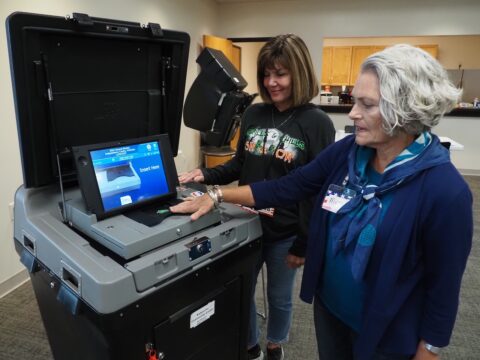*Update: A court hearing has been scheduled for Wednesday, October 15, 2025. Pulaski County Circuit Court Judge Patricia James is set to preside over the hearing. The hearing will begin at 1:30 pm and is open to the public — Pulaski County District Court, Room 230, located at 3001 W. Roosevelt Rd., Little Rock, AR 72204
Bentonville attorney Jennifer Waymack Standerfer joined Conduit to discuss the newly filed lawsuit on behalf of Franklin County resident Colt Shelby, which seeks to force an earlier special election for Arkansas Senate District 26, the seat left vacant after the passing of Senator Gary Stubblefield.
The lawsuit, filed in Pulaski County Circuit Court, argues that Governor Sarah Huckabee Sanders’ current schedule for the special election — set for June 9, 2026, nearly 280 days after Stubblefield’s death — violates state law requiring that legislative vacancies be filled within 150 days, except in limited cases where doing so would be “impractical or unduly burdensome.”
“The law actually requires that special elections be filled quickly — within 150 days,” Standerfer said. “Setting it out this far prevents the people of Senate District 26 from having representation in budget hearings and in the fiscal session.”
District 26 includes parts of Franklin and Sebastian counties, where voters are already watching closely as lawmakers prepare to consider funding for a proposed $825 million state prison. Standerfer said the timing of the election has consequences far beyond that single issue.
“Whatever you care about — education, rural hospitals, broadband, agriculture — those issues all depend on having someone in that seat,” she said. “You’re talking about billions of dollars in taxpayer money being allocated, and voters who won’t have a say in that is, in our opinion, unconstitutional.”
When asked about the governor’s justification that delaying the election saves taxpayer money and boosts turnout, Standerfer pushed back.
“If the point is to save taxpayer money and increase voter turnout, then hold it in March — when the primaries are already scheduled,” she said. “There’s no reason to wait until June.”
The lawsuit also challenges the state’s reliance on the “impractical or unduly burdensome” exception in the law, arguing that the phrase is too vague to justify such a long delay.
“That’s a pretty broad grant of discretion when you’re talking about the right to vote and the right to have a representative,” Standerfer said. “Those rights outweigh any logistical convenience.”
Standerfer explained that she filed the case in Pulaski County — not Franklin County — to ensure a fast hearing and reliable court technology for remote testimony.
“My plaintiff works on an oil rig out of state,” she noted. “We may need him to testify electronically, and Pulaski County has the resources to make that happen quickly.”
Throughout the interview, Standerfer emphasized that the case isn’t partisan — it’s about fundamental representation.
“It’s not about politics. It’s about Arkansans’ constitutional right to have a voice in their government,” she said. “This is about whether voters in District 26 deserve to be represented in every decision their government makes — and we believe they do.”
If successful, the lawsuit could move the special election up to December 2025 or March 2026, ensuring a senator is seated before the fiscal session begins in April.
“District 26 deserves representation before billions of taxpayer dollars are allocated,” Standerfer said. “We’re confident the court will act quickly, because the people of Arkansas deserve no less.”




